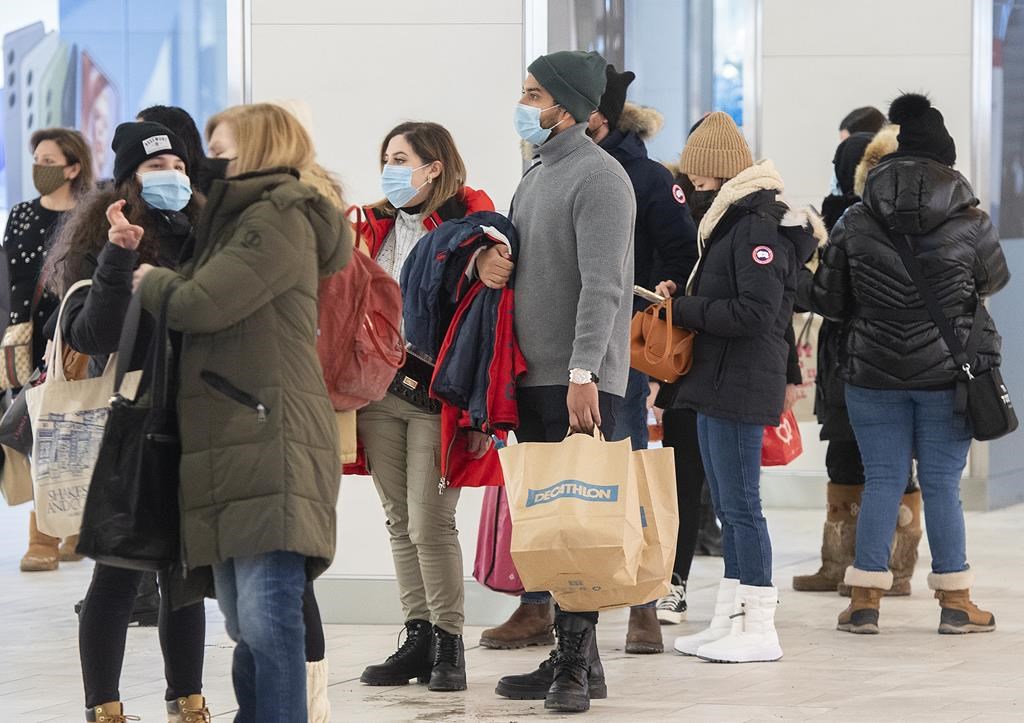Say what’s on your mind:
Ottawa – The results show that some Canadians are feeling more optimistic about the state of the national economy and their own pocket, but not as positive as they were before the COVID-19 pandemic.
According to the annual Leger survey of economic confidence, two out of five respondents felt the economy was in good or very good shape, up from the results of the same survey last February.
However, more than half of respondents were less confident about the state of the economy, with 54% rating it as in bad or very bad shape.
Although this percentage is down from 61% last year, it was higher than the 36% recorded in February 2020, before the first wave of the pandemic.
About two-thirds of respondents also said they were optimistic about their personal financial situation, a percentage that has held steady in surveys from each of the past two years.
The survey was conducted among 2,399 Canadians who participated in an online panel between January 7 and 12, and no margin of error can be determined, as online panels are not representative random samples.
Christian Burke, Leger’s executive vice president, said the findings suggest participants are more optimistic about the economy than markets and economists, who have lowered their forecasts for this year. The survey notes that optimism also extends to personal finances, despite rising inflation.
“People are feeling a little more optimistic than we thought, and that’s definitely an increase from what we’ve seen over the past year in terms of general optimism,” said Mr. Burke.
Expectations of the downgrade follow signals from central banks on both sides of the border that interest rates will rise this year to combat high inflation. Supply chain issues and the proliferation of the Omicron variable also represent economic headwinds for the start of 2022.
The Bank of Canada released an update on its economic forecasts on Wednesday.
The central bank estimated that the economy grew 4.6% in 2021, half a percentage point lower than its previous forecast in October, and now expects 4.0% real GDP growth for 2022, compared to its forecast of 4.3% in October.
The Bank of Canada explained that part of the deterioration this year has been due to the Omicron effect, and recent data and fiscal updates from the provinces and the federal government appear to indicate that public spending growth is slowing. The series of issues that will have “larger and more widespread negative consequences” this year.
Canadians are generally optimistic about the national economy, but maintain a level of caution about what might happen, which Burke said was reflected in the regional results.
The biggest rise in optimism about the economy between last year and now has come from participants in Alberta. But the oil-producing county also had the highest percentage of respondents, at 61%, who had the least confidence in the economy.
“For Prime Minister Kenny, this is another (exact question),” Mr. Burke emphasized. “In addition to dealing with the pandemic, he now has to deal with residents who feel things are not going Alberta’s way.”
Among the top financial concerns mentioned by respondents were the value of their investment, the security of their savings, and the ability to pay their bills.
These were the same as the main issues in last February’s survey, although the results indicate that fewer respondents were concerned about these issues overall.
Jordan Press, The Canadian Press

“Subtly charming problem solver. Extreme tv enthusiast. Web scholar. Evil beer expert. Music nerd. Food junkie.”

